The heroic chronicle is a system that allows players and Dungeon Masters to work together to build a compelling character story. It even allows characters to gain additional proficiencies, magic items, spells, or feats before the campaign begins. This section assumes that the player is starting from scratch—without having chosen a race, class, or background for their character. The events that occur as a result of these random rolls inform what kind of character the player has. A player who already has a character concept in mind can choose options from the tables instead of rolling randomly, ignoring anything that doesn’t fit their character concept. If you’re a player using these tables, don’t be surprised if creating a backstory inspires you to change some aspect of your character concept. Let this tool inspire your imagination rather than limit it.
–Heroic Chronicle, Explorer’s Guide to Wildemount
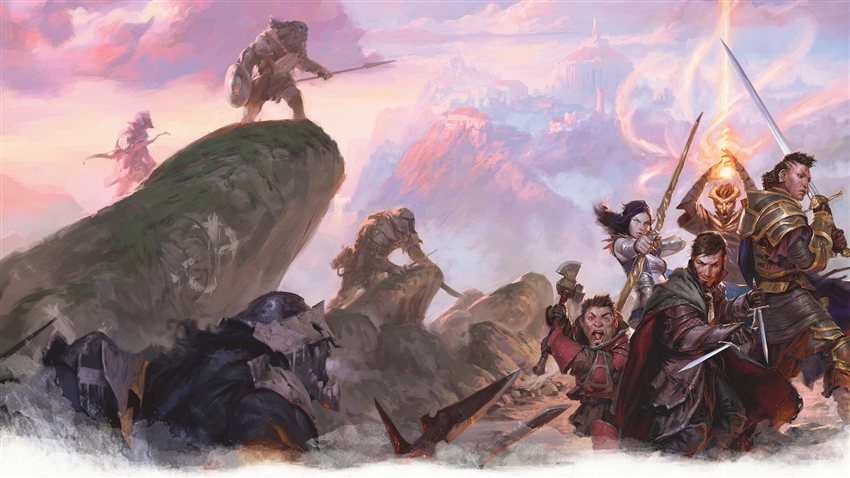
Fresh from Explorer’s Guide to Wildemount is the heroic chronicle, a tool that Dungeon Masters and players can use to create characters with strong, story-driven ties to their campaign world of choice. This system was originally created to help players create characters with the level of detail found in the cast of Critical Role, but it can be used by anyone who wants to dive into a new campaign setting.
The Forgotten Realms can be an intimidating setting to try and learn—it has over 40 years of lore to sift through, after all—but the heroic chronicle is here to help. One of the greatest strengths of this subsystem is that it gives players a quick glimpse into the setting; just enough to get started, without giving you the overwhelming feeling of having to do a book report just to play some D&D.
The original heroic chronicle was tied strongly to the continent of Wildemount, and this revamp fills gives you all the tools you need to create characters that feel grounded in the lore of the Sword Coast. The heroic chronicle includes two sections: Backstory, which you can complete on your own to learn about your character’s life before they became an adventurer, and Prophecy, which helps you work with your Dungeon Master to sketch out what you want to happen to your character over the course of the story.
In order to use this article, you will need Explorer’s Guide to Wildemount and Sword Coast Adventurer’s Guide. You can buy the full digital toolset version of this source with character sheet integration in the D&D Beyond Marketplace, or get just the Compendium content for a lower price.
Passages in this article found in block quotes are quoted directly from the heroic chronicle as printed in Explorer’s Guide to Wildemount.
Learn more about the heroic chronicle by watching the video below, and check out the original in Explorer’s Guide to Wildemount!
Backstory
A character’s story begins with determining the region where they were born, the job they had before becoming an adventurer, their social status, the settlement where they grew up, and their family relationships. As this backstory develops, the character will gain allies and rivals, as well as learn some of the fateful moments that set them on the path of adventure.
Homeland
The Sword Coast and the North can be divided into five major political regions, each of which are described in chapter 2 of the Sword Coast Adventurer’s Guide. These regions are the Lords’ Alliance, the Dwarfholds of the North, the Island Kingdoms, Independent Realms, and the Underdark.
To determine your homeland, roll 1d100 on the Homelands table below. You may decide your character was born in one region but grew up in another. In that case, roll twice to determine the land of your birth and the land you were ultimately raised in.
Homelands
|
d100 |
Political Region |
|
1–50 |
Lords’ Alliance |
|
51–60 |
Dwarfholds of the North |
|
61–70 |
Island Kingdoms* |
|
71–95 |
Independent Realms |
|
96–100 |
Underdark |
*Chapter 2 of the Sword Coast Adventurer’s Guide separates the Moonshae Isles from the Island Kingdoms; the Moonshaes are included among the Island Kingdoms in the heroic chronicle
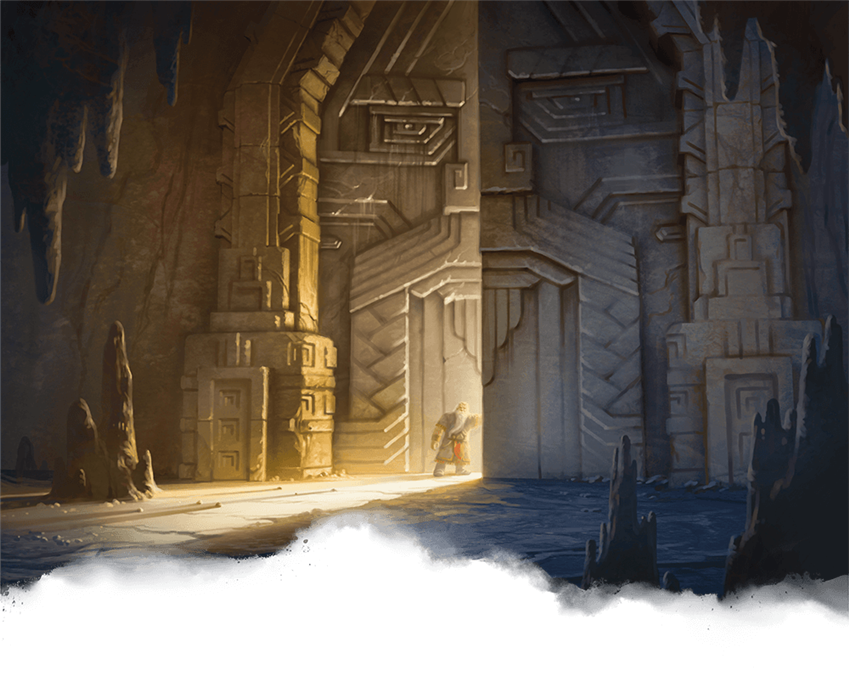
Background
Your background gives you more than just gold, items, and proficiencies. It also solidifies your place in the world—and confers you a level of social status based on your profession. You can roll on the Backgrounds table below to randomly determine a background, or you can choose one that suits the character you have in mind. This table includes backgrounds from the Player’s Handbook (PH) as well as new backgrounds from the Sword Coast Adventurer’s Guide (SCAG).
Backgrounds
|
d100 |
Background |
Reference |
|
1–4 |
Acolyte |
PH |
|
5–8 |
Charlatan |
PH |
|
9–12 |
City Watch |
SCAG |
|
13–16 |
Clan Crafter |
SCAG |
|
17–20 |
Cloistered Scholar |
SCAG |
|
21–24 |
Courtier |
SCAG |
|
25–28 |
Criminal |
PH |
|
29–32 |
Entertainer |
PH |
|
33–36 |
Faction Agent |
SCAG |
|
37–40 |
Far Traveler |
SCAG |
|
41–44 |
Folk Hero |
PH |
|
45–48 |
Guild Artisan |
PH |
|
49–52 |
Hermit |
PH |
|
53–56 |
Inheritor |
SCAG |
|
57–60 |
Knight of the Order |
SCAG |
|
61–64 |
Mercenary Veteran |
SCAG |
|
65–68 |
Noble |
PH |
|
69–72 |
Outlander |
PH |
|
73–76 |
Sage |
PH |
|
77–80 |
Sailor |
PH |
|
81–84 |
Soldier |
PH |
|
85–88 |
Spy |
PH |
|
89–92 |
Urban Bounty Hunter |
SCAG |
|
93–96 |
Urchin |
PH |
|
97–99 |
Uthgardt Tribe Member |
SCAG |
|
100 |
Waterdhavian Noble |
SCAG |
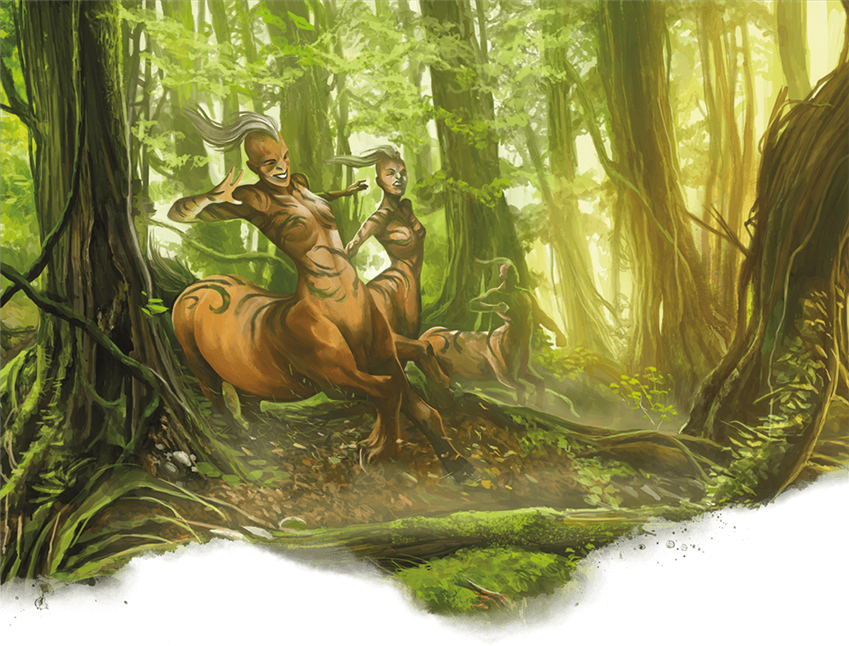
Social Status
Even in lands as free as the Sword Coast and the North, most folk are trapped in their social station by forces they can’t control like wealth, family, and political power. Your story begins with you as a member of one social class, determined by your homeland and your background.
You, however, are an adventurer. Though your social status is determined by your background and your country of origin, you have the power to rebel against the hierarchies of your land and change your fate. Your background doesn’t change, nor do the proficiencies and other benefits you gain because of it. But the social status associated with your background might shift over the course of your backstory—and over the course of your adventures.
Each realm in the North views people’s backgrounds according to its cultural values. Based on your character’s background, think about your social status within the context of the details of your homeland presented below. Then use the Social Status Relationships table to determine how many allies and rivals you’ll roll for later on in this section.
Social Status Relationships
|
Background |
Lords’ Alliance |
Dwarfholds of the North |
Island Kingdoms |
Independent Realms |
Underdark |
|
Acolyte |
1 ally (good deity) or 1 rival (evil deity) |
1 ally (good deity) or 1 rival (evil deity) |
1 ally (neutral deity only) |
— |
1 ally (evil deity) or 1 rival (good deity) |
|
Charlatan |
1 ally and 1 rival |
1 rival |
1 ally |
1 ally |
— |
|
City Watch |
1 ally and 1 rival |
1 rival |
1 ally |
— |
1 rival |
|
Clan Crafter |
— |
1 ally |
— |
— |
— |
|
Cloistered Scholar |
1 ally |
1 ally |
— |
— |
— |
|
Courtier |
1 ally and 1 rival |
— |
— |
— |
1 ally and 1 rival |
|
Criminal |
1 rival |
1 rival |
1 ally |
1 ally |
1 ally |
|
Entertainer |
1 ally |
1 ally |
1 ally |
1 rival |
1 ally |
|
Faction Agent |
1 ally (of your faction) and 1 rival (of another faction) |
1 ally (of your faction) and 1 rival (of another faction) |
1 ally (of your faction) and 1 rival (of another faction) |
1 ally (of your faction) and 1 rival (of another faction) |
1 ally (of your faction) and 1 rival (of another faction) |
|
Far Traveler |
— |
— |
— |
— |
— |
|
Folk Hero |
1 ally |
1 ally |
1 rival |
1 ally |
1 rival |
|
Guild Artisan |
1 ally |
1 ally |
1 rival |
— |
1 rival |
|
Hermit |
— |
— |
1 rival |
1 ally |
— |
|
Inheritor |
1 ally |
1 ally |
1 rival |
1 rival |
1 ally and 1 rival |
|
Knight of the Order |
1 ally |
— |
1 rival |
— |
— |
|
Mercenary Veteran |
1 ally |
1 ally |
1 rival |
1 rival |
1 rival |
|
Noble |
1 ally and 1 rival |
1 ally and 1 rival |
— |
— |
1 ally and 1 rival |
|
Outlander |
— |
— |
— |
1 rival |
— |
|
Sage |
1 ally |
1 ally |
1 rival |
— |
— |
|
Sailor |
1 rival |
— |
1 ally and 1 rival |
— |
— |
|
Soldier |
1 rival |
1 ally |
1 ally |
— |
1 rival |
|
Spy |
1 rival |
1 rival |
1 ally |
— |
1 rival |
|
Urban Bounty Hunter |
1 rival |
1 rival |
1 ally |
— |
— |
|
Urchin |
1 ally |
1 rival |
1 rival |
1 rival |
1 rival |
|
Uthgardt Tribe Member |
1 rival |
— |
— |
1 ally |
— |
|
Waterdhavian Noble |
1 ally and 1 rival |
— |
— |
— |
— |
Take note of how many allies and rivals you have gained through your social status. The number of allies and rivals you have will become important later, when you roll on the Acquired Allies and Rivals table.
Rules Tip: Rivals and Allies
When you choose a background, there’s a chance that you gain an ally, a rival, or possibly both. This is based on the region that you grew up in. When you choose your background look only at your home region to determine the allies and rivals you gain due to your social status.
Variant: Relationships from Multiple Lands
Usually, you only gain ally or rival relationships from one region. However, if your character is older or particularly well-traveled, then you’ve likely gained allies and rivals all over the land. With your DM’s approval, you can choose one or more additional regions to have made allies or rivals in.
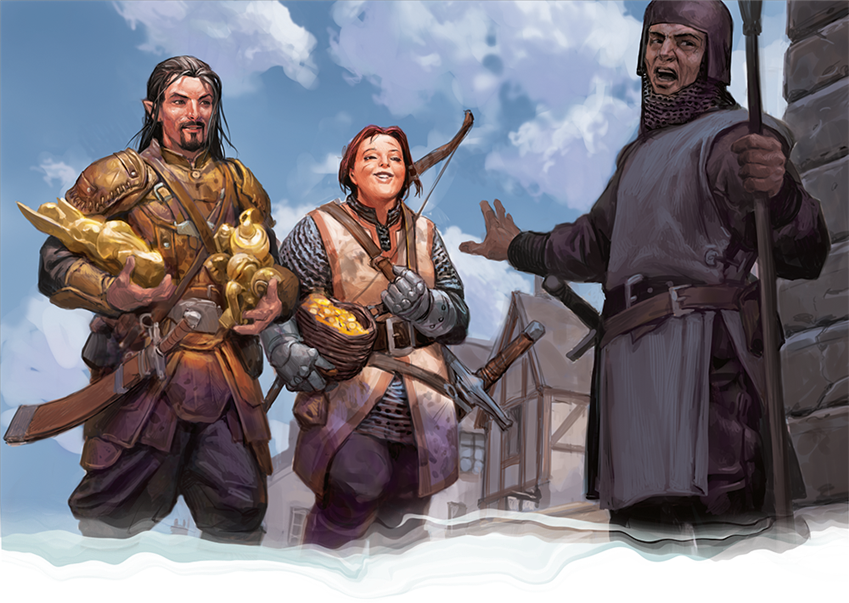
Home Settlement
Once you’ve determined your nation and considered your social status within that realm, roll on the appropriate table in this section to determine which settlement you grew up in. If your character is a traveler—a child of soldiers, a nomad, a traveling performer, and so forth—you can roll for up to three settlements that you’ve visited often and have some connections in.
The settlements of each realm are described in chapter 2 of the Sword Coast Adventurer’s Guide. You can select a settlement from your homeland or roll on your homeland’s table to randomly determine your home settlement. If you originate from one of the small cities or nations of the Island Kingdoms or Moonshaes, you will also want to choose which island you hail from, also described in chapter 2 of the Sword Coast Adventurer’s Guide.
Also, there are countless small settlements not listed in the Sword Coast Adventurer’s Guide, such as the town of Greenest (in Hoard of the Dragon Queen), the town of Red Larch (in Princes of the Apocalypse), and the settlements of Bryn Shander, Goldenfields, and Triboar (in Storm King’s Thunder). If you want to be from a settlement that is involved in the adventure you’re playing, consider asking your DM what towns or villages might be important in their Forgotten Realms adventure, and if you can be from that place.
If your home settlement doesn’t make sense for your social status, you can either roll for a different settlement or think about ways to make a contradiction work for your backstory. For example, if you have the Noble background but rolled a village as a home settlement, perhaps you were raised there to protect you from your family’s enemies.
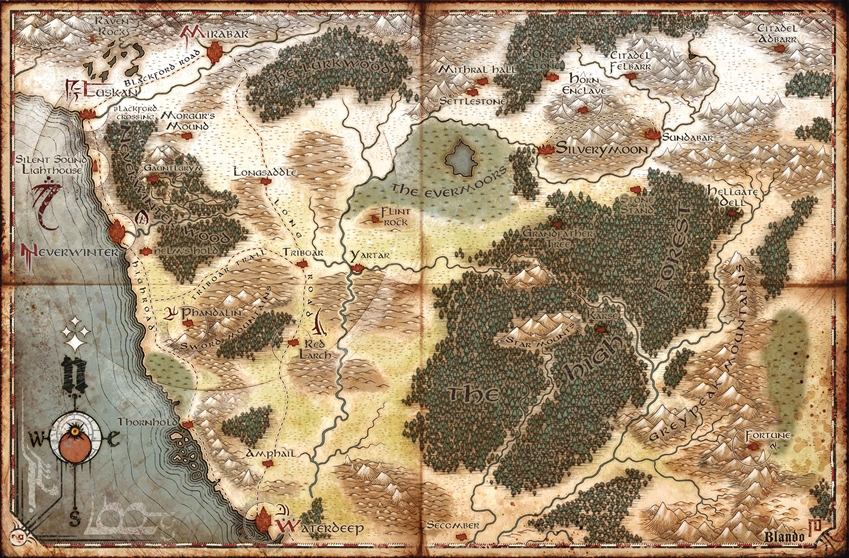
Lords’ Alliance Settlements
|
d100 |
Settlement Name |
Type |
|
1–10 |
Amphail |
Town |
|
11–25 |
Baldur’s Gate |
City |
|
26–39 |
Daggerford |
Town |
|
40 |
Longsaddle |
Hamlet |
|
41–50 |
Mirabar |
City |
|
51–60 |
Neverwinter |
City |
|
61–70 |
Silverymoon |
City |
|
71–90 |
Waterdeep |
City |
|
91–100 |
Yartar |
Town |
Dwarfholds of the North Settlements
|
d100 |
Settlement Name |
Type |
|
1–20 |
Citadel Adbar |
City |
|
21–40 |
Citadel Felbarr |
City |
|
41–60 |
Gauntlgrym |
City |
|
61–70 |
Ironmaster |
Town |
|
71–80 |
Mithral Hall |
Town |
|
81–99 |
Sundabar |
City |
|
100 |
Thornhold |
Fortress |
Island Kingdoms and Moonshaes Settlements
|
d100 |
Settlement Name |
Type |
|
1–25 |
Mintarn |
Island City |
|
26–35 |
Northlander Isles |
Island Tribes |
|
36–85 |
Moonshae Isles |
Island Kingdoms |
|
86–89 |
Orlumbor |
Island Town |
|
90–99 |
Southern Isles |
Small Island Nations |
|
100 |
Evermeet |
Mythical Island Nation |
Independent Realms Settlements
|
d100 |
Settlement Name |
Type |
|
1 |
Boareskyr Bridge (Fort Tamal) |
Fortress |
|
2–4 |
Candlekeep |
Castle |
|
5 |
Darkhold |
Village |
|
6–31 |
Elturgard (Elturel) |
Nation (City) |
|
32–41 |
Evereska |
Hidden City |
|
42–48 |
Hartsvale |
Isolated Kingdom |
|
49 |
Helm’s Hold |
Fortress |
|
50–52 |
High Moor (Secomber) |
Wilderness (Town) |
|
53–55 |
Trielta Hills (Hardbuckler) |
Wilderness (Town) |
|
56–60 |
Uthgardt Lands |
Nomadic Wilderness |
|
61–90 |
Luskan |
City |
|
91–100 |
Icewind Dale (Ten-Towns) |
Wilderness (Alliance of Towns) |
Underdark Settlements
|
d100 |
Settlement Name |
Type |
|
1–20 |
Gracklstugh |
City |
|
21–30 |
Mantol-Derith |
Town |
|
31–80 |
Menzoberranzan |
City |
|
81–100 |
Blingdenstone |
City |
These Underdark settlements are further described in the adventure Out of the Abyss.
Race
Throughout the Sword Coast and the North, people of any race can come from anywhere. However, if you come from a dwarf hold or an elven land (like Evereska or Evermeet) there are good odds that you’re a dwarf or an elf. Likewise, most drow, duergar, and svirfneblin come from the Underdark. However, that doesn’t mean that you have to be; many of the best stories start with a character who is an outsider in their own homeland.
Ultimately, this is to say: use your best judgment. As usual, your character’s race is up to you.
Family
The size of your home settlement affects the size of your family. Rural life encourages families to grow large, since families all tend to work a labor-intensive family trade together—and because death is common among the rural poor, even in a heroic setting like the Forgotten Realms. On the other hand, city families tend to be small, since necessities are expensive and living quarters are cramped.
Families in the Forgotten Realms with at least three children tend to encourage the eldest to continue the family trade in order to help supply the family in the present moment, while younger siblings are encouraged to go out into the world and seek their fortune to help the family move up in the world.
Roll twice on the appropriate Family Size table—once to determine how many living parents you have, and once to determine your living siblings. The state of your family might change over the course of your backstory, just as it might change over the course of the campaign.
Family Size Table
The Family Size tables presented in Explorer’s Guide to Wildemount works for both the lands of Wildemount and Faerûn. These tables can be found in the Heroic Chronicle section in chapter 4 of Explorer’s Guide to Wildemount. Roll on the Family Size (Village) table if your settlement is a castle, fortress, towns, hamlet, village, or any other type of small settlement of 10,000 people or less. Otherwise, roll on the Family Size (City) table.
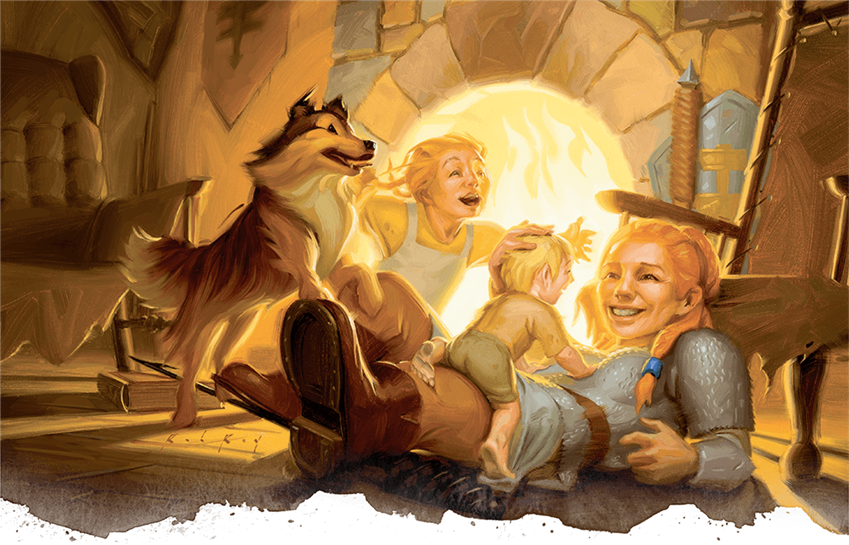
Family Member Traits
Once you’ve determined how many people are in your family, choose those family members’ ages, genders, and any other traits you wish to determine. You can go into as much or as little detail as you want, with your DM’s approval.
Powerful Family Relationships
Some family relationships are strong enough to affect you throughout your entire life, even after you depart your family home and start adventuring across Faerûn. You may have a positive relationship—a family member who would do anything for you—or a powerful adversarial one—a family member who wants nothing more than to see you fail. Roll a d3 to determine how many powerful relationships you have within your family, and then roll once on the Family Relationships table for each powerful family relationship you have. These results will determine the nature of your relationships.
These strong relationships will grant you allies and rivals. Take note of how many allies and rivals you have gained through your family relationships so you can determine that family member’s statistics when you roll on the Ally and Rival Identities table.
The Powerful Family Relationships table presented in Explorer’s Guide to Wildemount works for both the lands of Wildemount and Faerûn. This table can be found in the Heroic Chronicle section in chapter 4 of Explorer’s Guide to Wildemount.
Acquired Allies and Rivals
If you gained allies or rivals based on your background and your homeland, this section allows you to establish your relationship with those allies and rivals, as well as the broad strokes of their identities. Start by rolling once on the Ally Relationships or Rival Relationships table for each of those allies and rivals. Alternatively, you and your DM can work together to create ally or rival relationships that enhance your character’s story.
When you’ve determined the relationships between you and your acquired allies and rivals, roll for each one on the Ally and Rival Identities table to determine their game statistics. This table includes monsters and NPCs in this book (EGW) and in the Monster Manual (MM).
If you roll a particularly powerful ally or rival on this table, their involvement in your life causes a fateful moment to occur in your backstory, as determined in the next section.
The Ally Relationships, Rival Relationships, and Ally and Rival Identities tables presented in Explorer’s Guide to Wildemount work for both the lands of Wildemount and Faerûn. The only difference is the roll of 93–94 (Blood Hunter) on the Ally and Rivals Identities table. Replace this result with a rakshasa. This table can be found in the Heroic Chronicle section in chapter 4 of Explorer’s Guide to Wildemount.
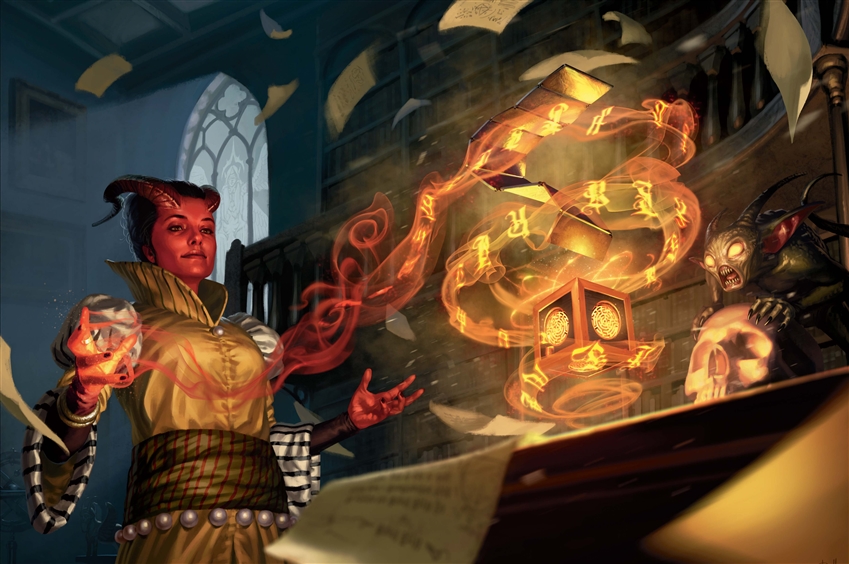
Fateful Moments
Many of the world’s greatest fantasy stories begin with a fateful moment, something that shocks a character out of complacency and into their life of adventure. This moment could happen in the first session of your campaign, but it’s more likely that you will begin your adventures in a tavern with your fellow party members. The moment the campaign starts could be days, weeks, even years after you left your home behind and began your adventures.
This moment is a turning point in your character’s life, and it didn’t happen by chance. This moment occurred because of someone—an ally or a rival that you determined earlier. That ally or rival might not have personally caused this fateful moment, but their actions in some way caused it. For example, if you only have allies, it might be strange if one of your allies caused the death of your family. You could make this odd combination work—perhaps your ally betrayed you or was possessed by a malevolent spirit—but you could also say that your ally killed a hobgoblin general, and that general’s second-in-command rallied his army to burn down your village in revenge. In that instance, your ally set events into motion that resulted in your fateful moment, even if they didn’t do the deed themselves.
Roll once on the Fateful Moments table for each fateful moment you gained from your ally or rival relationships. Alternatively, you can use the One Fateful Moment variant rule presented below, and only roll once on the table.
If a fateful moment grants you a proficiency that you already had, choose any proficiency of the same type (armor, skill, language, tool, or weapon). If a fateful moment doesn’t make sense for your character (for example, if your siblings perished but you don’t have any siblings), roll a new event or work with your DM to change up the details. You can also forego rolling for fateful moments entirely, instead working with your DM to create moments specifically attuned to your character’s story.
Fateful Moments
|
1d20 |
Event |
|
1 |
Your mother or father disappeared in the night, leaving behind a note and a package. The note read, “I’m sorry—there is a duty I am sworn to do. You must protect yourself and family while I am gone.” The package was a +1 longsword wrapped in a quilted blanket. You have proficiency with longswords. |
|
2 |
You were lost in the wilderness when a terrible storm nearly killed you. When you awoke, you were gravely wounded, but felt a strange power within you. You have the Elemental Adept feat from the Player’s Handbook and the ability to cast a cantrip based on the type of storm you were in. Constitution is your spellcasting modifier for this cantrip. Acid rain (acid splash), snowstorm (ray of frost), forest fire (produce flame), lightning storm (shocking grasp), thunderstorm (booming blade). |
|
3 |
The fell voice of the archdevil Zariel spoke to you in a dream. You no longer remember what that voice said, or what you promised to give it in return, but now you can cast find familiar as a ritual. Your familiar always takes the form of an imp. You also have a random form of indefinite madness, determined by rolling on the Indefinite Madness table in chapter 8 of the Dungeon Master’s Guide. |
|
4 |
You tumbled off a cliff and suffered a fall that should have killed you. When you awoke, you saw a figure that you believed to be the goddess Mystra in the distance through your bleary vision. You now occasionally hear her voice in your dreams, telling you strange secrets about the Weave. You have proficiency in the Arcana and Religion skills. |
|
5 |
You found a massive footprint while exploring the wilderness. Looking closer, you discovered a runestone smashed into the ground within the print. You touched it, and felt power surge within you as you grew to tremendous size! You shrunk moments later, but can still feel the power within you. You can cast enlarge/reduce once per day, using the enlarge option only. |
|
6 |
A horde of terrible monsters attacked your home, either destroying it (village/town) or doing massive damage before being repulsed (city/fortress). You will never forget the images of wanton slaughter that you saw. You have the Alert feat from the Player’s Handbook. |
|
7 |
You ventured too deep into a local hill-barrow without sufficient gear and fell through a false floor. You landed in a deep dungeon, and survived in the monster-infested darkness there for years before you managed to escape. You are haunted by what you experienced, but you learned much about how to survive in such a place. You have the Dungeon Delver feat from the Player’s Handbook. |
|
8 |
You were captured by drow or duergar in a raid. You managed to escape slavery, but had to disguise yourself and pretend to be one of them to survive on the streets without being captured again. Eventually, you made your escape. You gain the Actor feat from the Player’s Handbook and proficiency with disguise kits. |
|
9 |
Your family unknowingly gave shelter to a member of the Cult of the Dragon, and unwittingly earned their favor. The cult believes you are one of them, and gave you 1,000 gp to deliver to a secret shrine to Tiamat, along with a map to that shrine. |
|
10 |
A master horse trainer came to your home one day, seeking refuge from a warlord who had purchased his horses and then sought to kill him to keep his secrets from spreading. He rewarded you by mentoring you as a horse trainer. You have proficiency in the Animal Handling skill, and a warhorse with full tack and harness. |
|
11 |
A Red Wizard of Thay tortured your family to death before your very eyes, and in a fit of blind rage you killed the cruel wizard with a skewer from your fireplace. You have the Mage Slayer feat from the Player’s Handbook. |
|
12 |
While traveling, you found an elf of Evereska at the side of the road, their chest pierced by manticore spines. They begged you for help, and showed you the gestures to cast a spell of healing. You nearly collapsed from the exertion, but managed to cast the spell. You gain the Magic Initiate feat from the Player’s Handbook, learning two bard, cleric, or druid cantrips and the cure wounds spell. |
|
13 |
You were trained in the art of combat by an old traveling warrior. He saved your village from bandits while you were training together, but died in the process. You inherited his weapon and his techniques. You have proficiency with a martial weapon of your choice, and you own one such weapon. It has special features as detailed in chapter 7 of the Dungeon Master’s Guide. You also have the Martial Adept feat from the Player’s Handbook. |
|
14 |
You were saved from a cult of the Dead Three by a member of the Flaming Fist mercenary company. Their sergeant was an inspiring and charismatic half-orc, and you can still hear her words in your head. You have the Inspiring Leader feat from the Player’s Handbook. |
|
15 |
Your village was burned to the ground by raiders. This band of marauders was led by a being whose image has been seared into your mind forever. Roll on the Rivals and Allies Identities table to determine what type of creature their leader was. You have proficiency in the Stealth and Survival skills. |
|
16 |
You fell asleep in a forest and awakened in the court of the fey, where you were made to serve the fickle Archfey for a decade. When you finally managed to escape, it was as if no time had passed. You have proficiency with the Deception and Performance skills. |
|
17 |
A majestic phoenix with wings of flame flew over your home one day, but when you asked other people about it, you learned that you were the only one who saw it. You’ve started having dreams about the fiery bird, and discovered you can manifest its flames. As a bonus action, you can ignite your fists or a weapon you’re holding in flames for 1 minute, causing those attacks to deal fire damage instead of its usual damage. Starting at 5th level, the attacks deal an additional 1d6 fire damage. Once you use this trait, you can’t use it again until you complete a short or long rest. |
|
18 |
A skilled dwarven armorer traveled through your home settlement one day, and held a blacksmithing contest. You impressed him, and he taught you the secret of how to make armor from adamantine, the hardest material on Faerûn. You have a suit of adamantine armor in a style of your choice. |
|
19 |
You were imprisoned for a grave crime you didn’t commit—or possibly one you did. When you got out of prison, you picked up a number of habits from your inmates. You have proficiency in the Intimidation or Deception skill (your choice) and you know thieves’ cant. |
|
20 |
You were an apprentice at the grand library of Candlekeep, where you learned secrets beyond most mortals’ knowledge. You gain the Skilled feat from the Player’s Handbook, and can work with your Dungeon Master to create a secret that could change the fate of the world. |
Variant: One Fateful MomentThe heroic chronicle includes some elements of variance, namely in how characters can gain several Fateful Moments, or none at all, based on the result of rolls. If you want a game where characters are more equal in power from the outset, you may wish to simply give each character a single Fateful Moment, rather than randomly determining these moments based on their rivals or allies. If a Fateful Moment references a rival or an ally, the player can choose which of their character’s rivals or allies were involved in that Fateful Moment.
Other Elements
The heroic chronicle includes other elements ranging from your character’s favorite food to creating a prophecy with the DM that will help shape your character as the campaign unfolds. Read the second part of the heroic chronicle to continue your journey. Part two will help you imbue your character with flavorful elements like your character's favorite food and their most mysterious secret, and use new Prophecy rules to help plot out a powerful story moment for your character later in the campaign.
Create A Brand-New Adventurer Acquire New Powers and Adventures Browse All Your D&D Content
 James Haeck is the lead writer for D&D Beyond, the co-author of Waterdeep: Dragon Heist, Baldur's Gate: Descent into Avernus, and the Critical Role Explorer's Guide to Wildemount, a member of the Guild Adepts, and a freelance writer for Wizards of the Coast, the D&D Adventurers League, and other RPG companies. He lives in Seattle, Washington with his fiancée Hannah and their animal companions Mei and Marzipan. You can find him wasting time on Twitter at @jamesjhaeck.
James Haeck is the lead writer for D&D Beyond, the co-author of Waterdeep: Dragon Heist, Baldur's Gate: Descent into Avernus, and the Critical Role Explorer's Guide to Wildemount, a member of the Guild Adepts, and a freelance writer for Wizards of the Coast, the D&D Adventurers League, and other RPG companies. He lives in Seattle, Washington with his fiancée Hannah and their animal companions Mei and Marzipan. You can find him wasting time on Twitter at @jamesjhaeck.








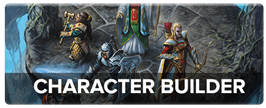
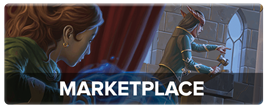
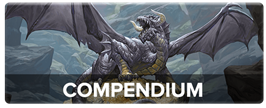
-
View User Profile
-
Send Message
Posted Apr 29, 2020This is actually really well done. When's Greyhawk? Just got into it and it really deserves a 5e update.
-
View User Profile
-
Send Message
Posted Apr 29, 2020About time characters were allowed to start with a [Tooltip Not Found].
I would also like to point out that Xanathar's Guide has something pretty similar in the This Is Your Life section. Some people might prefer that or might like to combine the two.
-
View User Profile
-
Send Message
Posted Apr 29, 2020That was really good. I just started working on an Artificer, and was a perfect addition to my character. Can you make an Eberron one in the future?
-
View User Profile
-
Send Message
Posted Apr 29, 2020This is great. I love the Heroic Chronicle in EGtW, and it's great that you updated it for the Sword Coast.
-
View User Profile
-
Send Message
Posted Apr 29, 2020Think you're missing a longsword, there, bud. Hope it was a magical one!
-
View User Profile
-
Send Message
Posted Apr 29, 2020I can see how this is a useful resource and in a way it reflects Baldur's Gate Descent into Avernus where the DM may ask your character what they may fear so later on it is reflected in Avernus so you get a feeling of what that character's personality is without heavily running the story just as the DM but get to tap into people's characters.
Long Live D&D!
-
View User Profile
-
Send Message
Posted Apr 29, 2020Good catch, thank you! Resolved.
-
View User Profile
-
Send Message
Posted Apr 29, 2020I would love to do one for Eberron! If this article gets a lot of views, I'll gladly do one for Eberron, too! The major roadblock to doing other heroic chronicles is that they're very long, and very time-intensive. I loved doing this one, but it took about four times as long as one of my usual articles. I wish I didn't have to consider them time investment, but it's something I've always got to keep in mind. :(
-
View User Profile
-
Send Message
Posted Apr 29, 2020James! I just, not 10 minutes ago, googled "Heroic Chronical Faerun". Thank you SO MUCH for making this.
This will be an incredible resource for my new Duet campaign. I can't wait to use it today.
-
View User Profile
-
Send Message
Posted Apr 29, 2020Omg! Was thinking I am going to have to creat one for Forgotten Realms..but here it is! Thx James!
-
View User Profile
-
Send Message
Posted Apr 29, 2020I loved this walk through of the heroic chronicle, and adapting it to the Forgotten Realms. I would also be super interested in seeing an Eberron version as this seems like a perfect way to learn more about the world in a bit more manageable way. Guess I’ll have to send this article to the rest of my group to boost the page views :)
-
View User Profile
-
Send Message
Posted Apr 29, 2020Second the request for Eberron!
-
View User Profile
-
Send Message
Posted Apr 29, 2020Thank you so much for this article! I really do love the Heroic Chronicle system. I've been setting up a Wildemount campaign and have gone through the chronicle with about half the party, and so far they all really appreciate having a structured system to get them a little acquainted with the setting. I'm sure making one of these for a setting is pretty intensive. There's a lot of aspects to take into account that are often setting specific. I do hope in the future we can see a Heroic Chronicle for Eberron as I absolutely love the setting!
-
View User Profile
-
Send Message
Posted Apr 29, 2020This reminds me a lot of "Central Casting Heroes of Legend" (1995). This book had a large series of tables to determine culture, social, etc. things and then build a background. It's available on Scribd - I haven't seen it on any of the buy a PDF sites. Two other books in the series cover scifi and modern settings.
On Greyhawk, starting from Living Greyhawk and making the port is relatively trivial. You can use the older Greyhawk boxed set, the conversion there is a bit harder because it makes assumptions about the 1st Edition systems. But since Living Greyhawk already took things to 3rd edition - carrying it on to 5E shouldn't be too horrible. I haven't looked at it in a while, but have both 1E and 3E Greyhawk sitting here - but most of the changes are already present in 5E - and so I wouldn't think you'd have to do a lot.
For example, one of the deviations was that a cleric could use bladed or piercing weapons if it was appropriate to their sphere. And so modern clerics don't have the limitation in the first place, on that same basis. Items might have difficulties if they get into things that have changed significantly like thief skills, etc. - but it's pretty easy to translate a stealth bonus, etc. by modeling after Cloak of Elvenkind or similar items.
-
View User Profile
-
Send Message
Posted Apr 29, 2020Tossing a vote for Eberron as well!
-
View User Profile
-
Send Message
Posted Apr 29, 2020Well I’m a fan of this! Can we possible get something like this put in the tools section on the website/app.
-
View User Profile
-
Send Message
Posted Apr 29, 2020Most excellent article! I am definitely using this when creating my next character.
-
View User Profile
-
Send Message
Posted Apr 29, 2020Here's another!
-
View User Profile
-
Send Message
Posted Apr 29, 2020One more vote for Eberron.
-
View User Profile
-
Send Message
Posted Apr 29, 2020Cool.